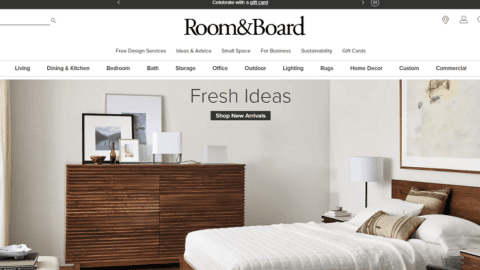The retail landscape is evolving, driven by shifting consumer preferences and an increasing awareness of the environmental impact of traditional business practices. As demand for sustainability grows, retailers are tasked with reimagining their strategies to embrace eco-friendly solutions. Amidst these changes, seemingly minor elements within retail displays are stepping into the spotlight for their potential to make a significant difference.
Within the expansive framework of retail, where every product placement and visual appeal matter, one often-overlooked component stands out: the clothing hanger. Traditionally considered an inconsequential part of retail displays, hangers have transformed to catalyze change in the pursuit of sustainability. This transformation is a testament to how the smallest alterations in retail practices can contribute significantly to a larger sustainability narrative.
The Role of Hangers in Retail Displays
The retail industry thrives on the art of presentation, with each detail meticulously arranged to entice and engage the consumer. Amidst the array of visual elements that compose a retail display, hangers play a fundamental yet often understated role.
Hangers have long been an integral part of retail displays, serving as a functional tool to showcase clothing items. From the classic wooden hangers to the more modern plastic variants, their primary purpose has been to maintain the shape of garments and facilitate ease of browsing for customers.
Advertisement
However, conventional hangers come with a hidden cost: the manufacturing processes and materials used in these hangers contribute significantly to environmental degradation. Mass production of plastic and metal hangers adds to the burden of non-biodegradable waste, exacerbating landfill concerns and resource depletion.
The urgency to address environmental concerns has led to a shift in perspective, and sustainable hangers — crafted from recycled materials or designed for biodegradability — have emerged as a viable alternative. The evolution of hangers from simple display tools to eco-conscious components mirrors the changing ethos within the retail sector.
Advantages of Sustainable Hangers
Sustainable hangers are an environmentally friendly alternative to their conventional counterparts, bringing a multitude of advantages to the retail sector. Unlike traditional hangers, primarily made of plastic or metal, sustainable hangers encompass a diverse array of eco-conscious materials. From recycled plastics and bioplastics to bamboo and recycled cardboard, these materials offer durability while contributing to reduced reliance on non-renewable resources.
The adoption of sustainable hangers significantly reduces the environmental impact of retail operations. These hangers, made from eco-friendly materials and through sustainable production processes, reduce carbon emissions and lessen the strain on landfills. Moreover, integrating biodegradable options helps minimize long-term environmental consequences, further emphasizing their eco-friendly nature.
Beyond their environmental benefits, sustainable hangers resonate with the increasing number of environmentally conscious consumers. Retailers embracing these eco-friendly practices demonstrate their commitment to sustainability, positively influencing consumer perceptions. Using sustainable hangers aligns with the values of environmentally aware consumers, fostering goodwill and potentially impacting purchasing decisions.
Influence on Consumer Perception and Behavior
The impact of sustainable hangers in the retail sphere goes beyond environmental implications to profoundly influence consumer perception and purchasing behavior, deeply resonating with the values of an increasingly eco-conscious consumer base. As consumers become more aware of environmental issues, their buying decisions increasingly favor brands that align with their ethical values. Thus, retailers adopting sustainable hangers signal a commitment to environmental stewardship, appealing favorably to these discerning consumers.
Consumers are increasingly basing their purchasing decisions on a company’s environmental initiatives. In fact, 88% of consumers look at a company’s sustainability practices and products before purchasing, and retailers incorporating sustainable hangers capitalize on this trend.
Furthermore, the integration of sustainable hangers extends beyond individual retailers. It prompts broader industry shifts as consumer demand for eco-friendly products continues to escalate. This consumer-driven change compels competitors and industry players to adopt similar sustainable practices to remain competitive, thereby catalyzing positive transformations throughout the retail sector.
The integration of sustainable hangers is emblematic of a broader commitment to sustainable retail practices. It highlights the potential for seemingly minor adjustments to have profound impacts, demonstrating that every choice made within the retail sphere holds the power to shape a more environmentally conscious and responsible future. As retailers continue on this path, the retail landscape stands poised for a transformative journey where sustainability is not only a trend, but also a collective testament to the evolving nature of retail as it strides toward a more sustainable future.
Joseph Schlossberg is a VP of Global Sales at Sourcing Solutions International. He began his career in the industry right after receiving his business degree from Seton Hall University in 2014. Sourcing Solutions International is a one-of-a-kind supplier that manufactures both hangers and packaging for the apparel/retail industry. SSI currently has production in China, Bangladesh, Vietnam, Indonesia, Cambodia, India and El Salvador. SSI is currently working on expansion in regions such as India, Africa, the Middle East and Europe.









